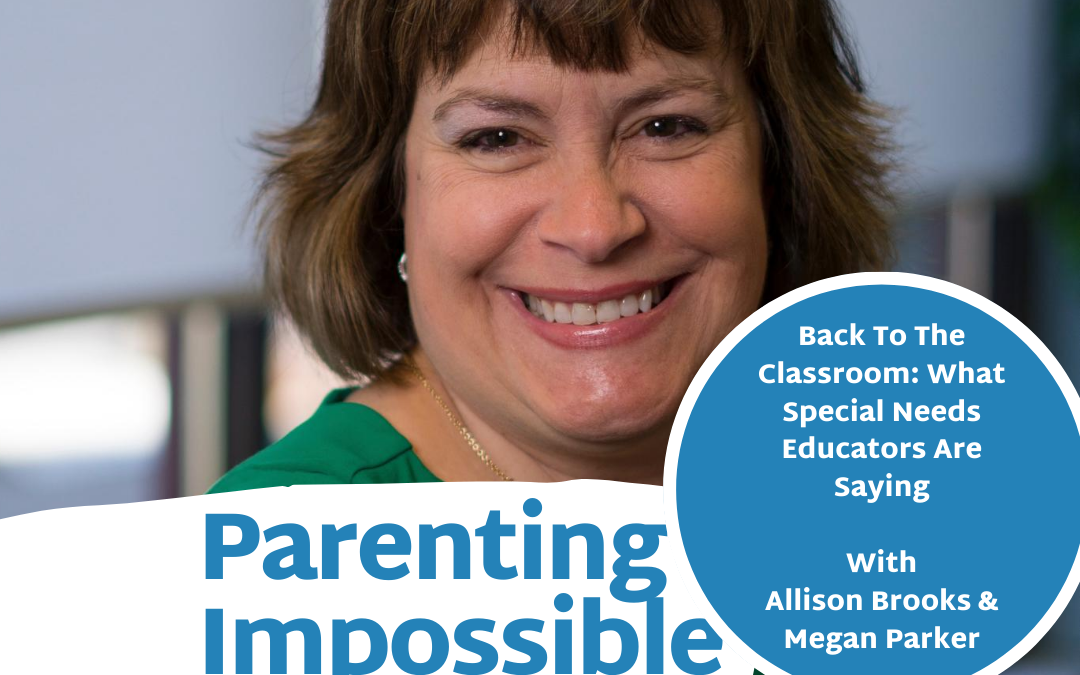Is our education system supporting the needs of kids with disabilities during the ongoing COVID-19 pandemic? That’s the question host Annette Hines, Psychologist Allison Brooks and Special Education teacher Megan Parker discuss during Episode 64 of Parenting Impossible.
Allison Brooks is a psychologist working in the Seattle Washington area. She has an extensive history speaking about topics such as Fetal Alcohol Spectrum Disorders (FASD), Autism, educational advocacy, motivation for middle schoolers, ADHD, and anxiety. Brooks has also served on state advisory councils for autism, FAS, and school refusal.
Megan Parker is a Special Needs teacher working in Florida, a state that’s currently embattled in a controversy over how to handle the 2020 school year. This week, some districts started in-class learning despite a lawsuit filed by the Florida Education Association to delay classroom learning.
The trio begins the show with a conversation discussing the transition from school to remote learning from a teacher’s perspective. Parker, the mother of a two-year-old son, had to find a balance between work and motherhood. She shares her experience dealing with this difficult situation and what she learned in the process.
Later, Brooks shares her observations about the need for each child to follow their own education plan (especially children with special needs). While some of her students have thrived in the virtual learning space, others have fallen behind. We learn more about her thoughts on why some children are having a harder time adjusting.
Finally, the women dive into how issues of equality and income have played a part in the success of distance learning. They also address how to build a better plan with parents and educators in the future.
Annette Hines has been practicing in the areas of Special Needs, Elder Law, and Estate Planning for more than 20 years. Ms. Hines brings personal experience with special needs to her practice and podcasts as the mother of two daughters, one of whom passed away from Mitochondrial disease in November 2013. This deep, personal understanding of special needs fuels her passion for quality special needs planning and drives her dedication to help others within the special needs community.

